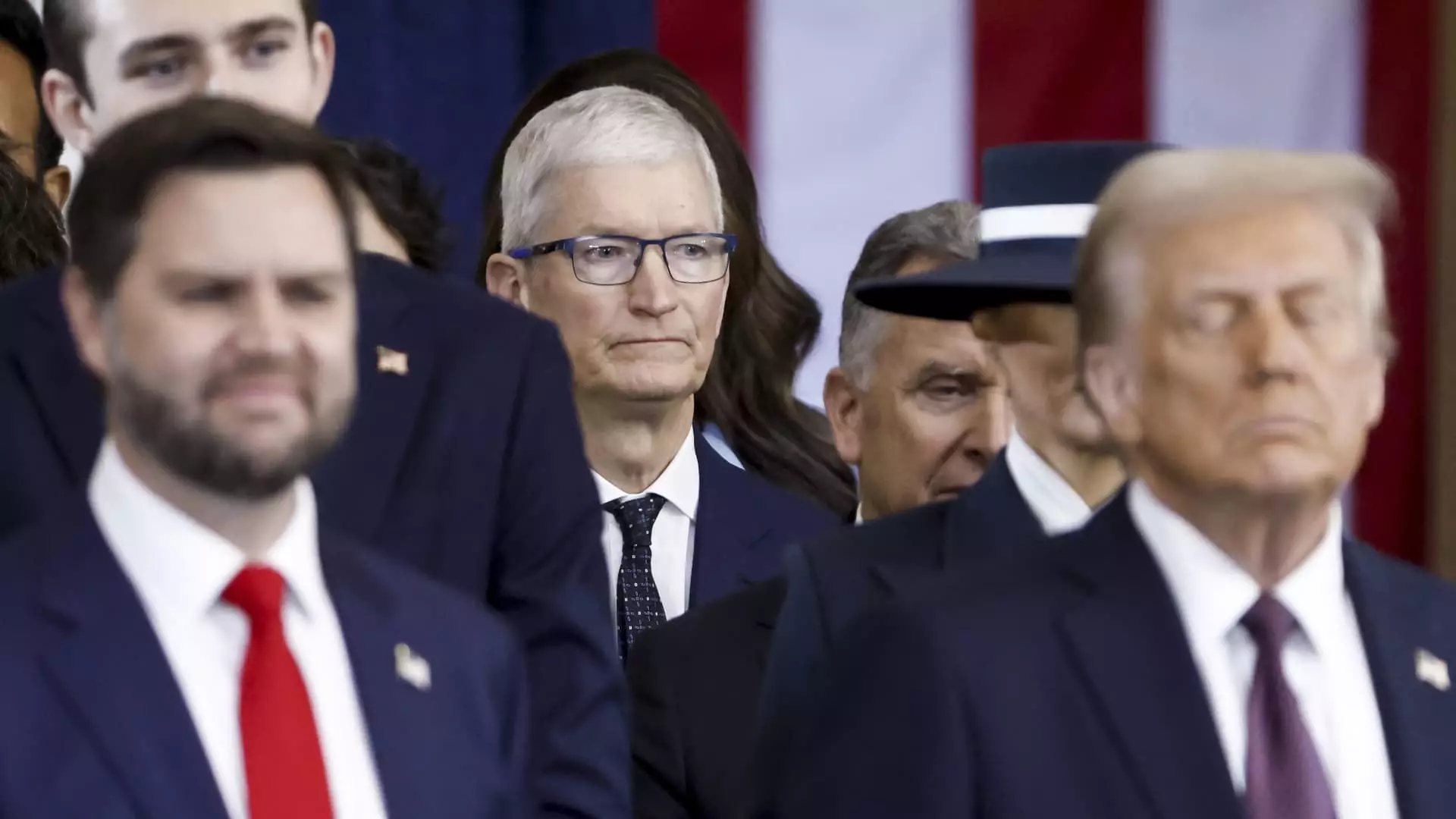In a startling market development, Apple’s stock plunged over 6% in after-hours trading, leading a disastrous trend among technology giants as the implications of President Trump’s newly introduced tariffs began to unfold. The tech sector, which prides itself on innovation and global supply chains, now feels the crushing weight of economic nationalism seeping into its core. With tariffs ranging from 10% to an astonishing 49% on imported goods, this move compromises the viability of companies like Apple, whose revenue is heavily tied to manufacturing in China. This policy decision feels like a nail in the coffin for the principles of free trade that have long buoyed our economy.
Market Ripples: A Tech Sector in Flux
After Trump’s announcement, other tech stocks followed suit—Nvidia down 4%, Tesla 4.5%, and even strongholds like Alphabet and Amazon took hits of up to 5%. This broader decline, although sparked by one man’s pronouncement, raises serious questions about the resilience of the tech sector in the face of reckless government intervention. The prospect of such steep tariffs could jeopardize growth at a time when these companies are supposed to be leading us into a new era of technology-driven prosperity. Investors ought to be apprehensive. If Apple’s post-market decline continues into regular trading, we could witness the most significant drop since September 2020—an indicator that the market is grappling with vulnerabilities it shouldn’t have to consider.
The Myth of Economic Independence
Trump’s rhetoric touting these tariffs as a “declaration of economic independence” is not only misleading but downright dangerous. While the intention may be to bolster domestic production, the oversimplification of global trade dynamics disregards the intricate web of globalization that these companies rely on. By imposing tariffs that disproportionately target nations like China, Europe, and Japan, the administration risks alienating vital trading partners and undermining American consumer interests. If the ultimate goal is stronger competition and lower prices, it’s crucial to remember that taxing imports often comes at the expense of increased consumer costs. The very essence of competition could be stifled as expenses rise.
Illusions of Domestic Investment
Trump lauded tech giants like Apple for their purported $500 billion investment in domestic production, framing it as a patriotic duty. However, it raises alarm bells about whether such investments are sustainable or merely a reaction to political pressure. Apple and others might build plants in the U.S., yet the larger question looms: will these operations be able to compete when facing the inflated costs brought on by tariffs? While touting “American jobs,” are we veering dangerously close to creating an economy that punishes efficiency in the name of nationalism?
The Quest for Global Collaboration
As the Nasdaq wraps up its worst quarter since 2022, the visibility of tech companies struggling under the weight of poor political decisions serves as a reminder that the pursuit of economic prosperity hinges on international cooperation, not division. If President Trump believes breaking “foreign trade barriers” through retaliation will lead us to economic utopia, he is severely misjudging the complexities of global trade. The high-tech future that many hope for is unlikely to be achieved under an “America First” regime that prioritizes isolation over collaboration. It’s time to raise critical questions about the direction we are heading, before it’s too late.

